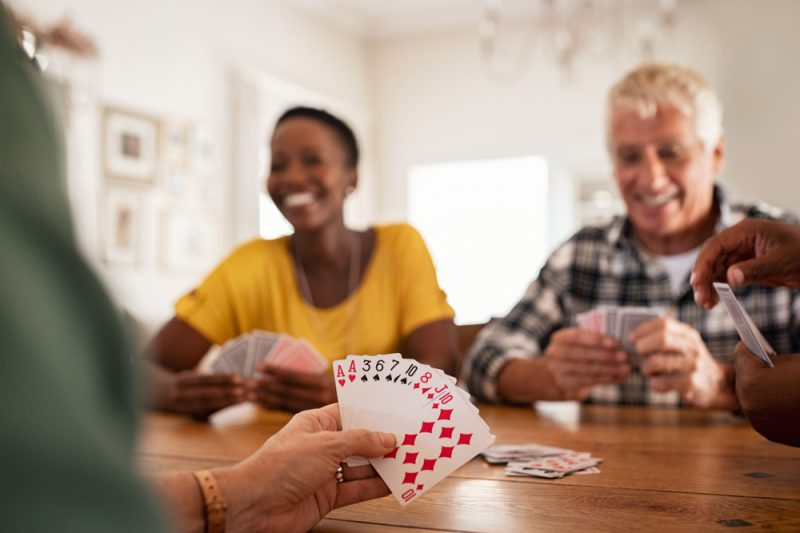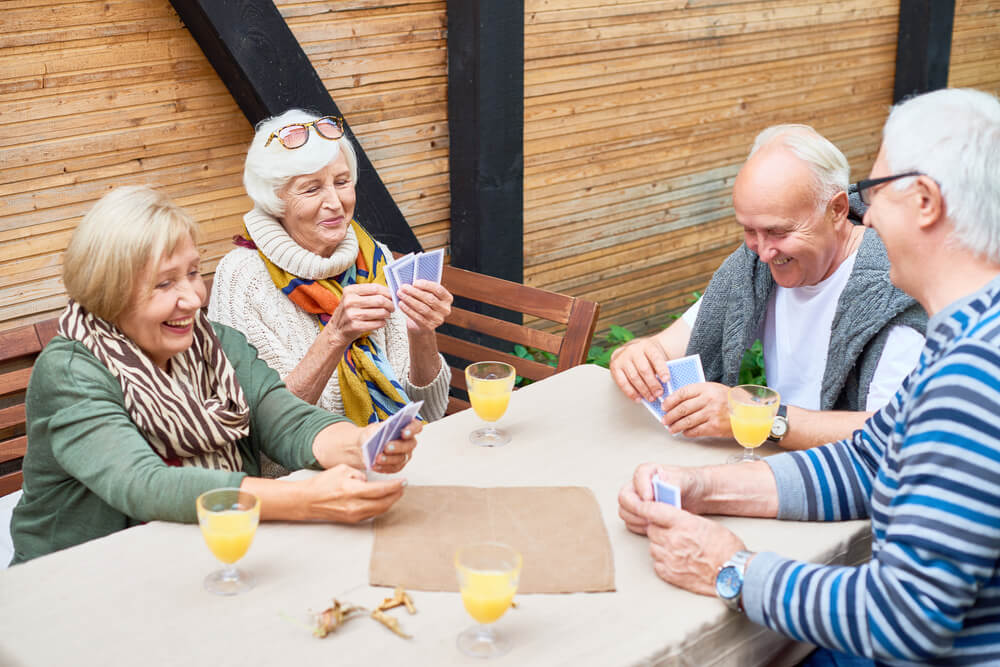As we grow older, we leave behind many of the beliefs we had in our youth. After all, we are wiser, more mature. However, there’s at least one thing we knew to be absolutely true as kids that we shouldn’t forget now: games and hanging out with friends are great ways to spend your free time. Fortunately, playing cards gives us the chance to do both at the same time.
What many people may not know is that playing gin rummy or blackjack with friends can be more than a pleasant way to pass the evening. It also helps improve your cognitive function. That’s because both playing games and being around positive people rank high on the list of habits that can make your brain younger.
But you don’t have to just trust your inner 11-year-old. Science has something to say about it, as well.
Playing Cards, Crafting and Computers
In a recent study from the American Academy of Neurology, researchers associated playing card games, crafting or playing games on a computer with a 20% drop in the risk of developing mild cognitive impairment and subjective cognitive impairment.
The study found that social activities, including playing cards with friends or going to the movies, also led to a drop in risk for cognitive decline. Further, the study found that the more activities people engaged in, the bigger the drop in the risk of developing cognitive impairment. For example, those who engaged in four activities had their risk lowered by 56%.
Another study, published in Frontiers in Psychology, found that older people who engaged socially while playing card and board games saw an improvement in their level of executive function.
Card Games You Can Try
Clearly, card games and socializing offer benefits for the health of your brain. Still, many people don’t know much about playing cards. If that’s the case with you, here are some common games to learn, all fun in their own way.
Solitaire
This is a good place to start learning about the cards themselves. You can play solitaire with a deck of cards or on your computer. Most computers come with a Solitaire game already loaded as part of the software. If you are unfamiliar with cards, this can teach you quickly.
Bridge
For those with experience in playing cards, Bridge offers a way to challenge yourself at a high level and socialize while you do it. More than 25 million people in the United States play bridge, and fans include Warren Buffet and Bill Gates.
Gin Rummy
This is a good game because it’s relatively easy to learn but takes a lot of attention to detail to win. It also requires players to remember what cards have been played – a great exercise for your brain’s short-term memory.
Blackjack
This also requires good memory as well as a bit of a competitive streak! But it’s a great game that has fairly simple rules but many different strategies. Each hand also requires doing simple math to measure your risk versus your chance of winning.
Mahjong
This is technically a game that requires tiles and not cards, but it’s the same concept. Originated in China, Mahjong provides a cerebral workout every round as players assess the many different ways they can put together a winning hand. Complex but incredibly fun once you learn.
Whatever game you choose to play, it’s best if you mix in some socializing, as well. Science shows it will improve your cognitive function. Your inner child knows it’s just good fun.

